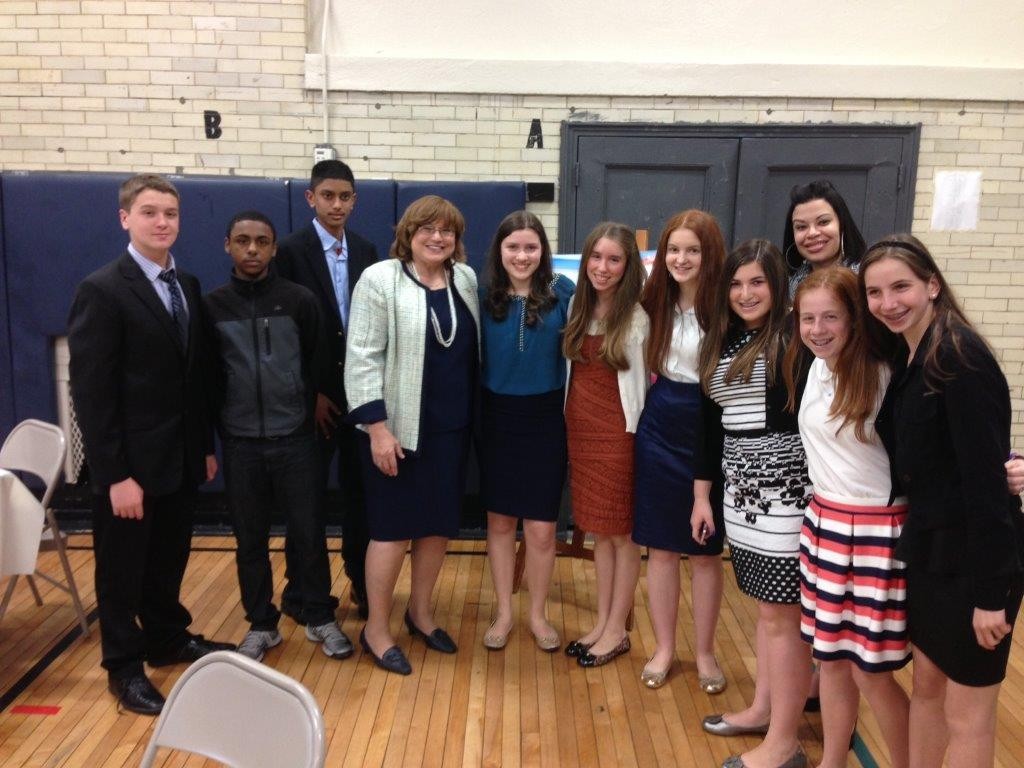Preserving their historical legacy
‘Names Not Numbers’ program personalizes Holocaust stories
Ten years ago Tova Rosenberg developed an innovative way to teach the lessons of the Holocaust to young people while adding a human dimension so those who perished would be remembered as individuals.
“My goal is to study the Holocaust through the personalization of telling someone’s story; focusing on their name, not their number,” Rosenberg said.
Rosenberg created the “Names Not Numbers” program, an oral history film project in which students are given the opportunity to interview, film and create a documentary of the stories of Holocaust survivors or World War II veterans who liberated concentration camps. Throughout the project, the students work with professionals—journalists, filmmakers and Holocaust scholars. “In a traditional classroom, students learn about the Holocaust through reading books, listening to lectures, or watching documentary footage of individuals they will never meet,” Rosenberg said. “The project transforms traditional history lessons into a lively, interactive, nontraditional program that involves individuals who have actually lived through the history being taught.”
For the past three years, the program has been ongoing at the Hebrew Academy of the Five Towns and Rockaway (HAFTR) Middle School. “The students learn how to conduct an oral interview, how to use professional video cameras and are taught how to edit,” Principal Dr. Rochelle Brand said. “The program spans the school year between special classes, a trip to the Museum of Jewish Heritage [in Manhattan], as well as workshops on interviewing, filming and editing techniques.”
According to Brand, the program concludes when the finished video is shown at a public viewing in May, close to Holocaust Remembrance Day, which is observed next year on April 27, 2014. “This program benefits the students as it teaches them many lessons,” Brand said. “First, it teaches them about their own history and heritage, as well as that every life is precious and has value. They learn about the tragedy that ensues when nothing is done to stop evil and about the heroes who risked their lives to protect the Jews.”
At the end of the year, Rosenberg said a total of 48 documentaries with over 450 interviews would be archived at The National Library of Israel and Hebrew University, Yad Vashem Holocaust Museum--both in Jerusalem and Yeshiva University. “The work of the students is so professional that these major institutions are valuing it,” she said.
Sharona Thall’s daughter, Chloe, now a sophomore, participated in the program while in eighth grade at HAFTR and her eighth grade daughter Lexi is currently involved. “[Chloe] had the opportunity to interview my mother who is a Holocaust survivor,” Thall said. “This is an incredible program in that the students are intimately involved with learning about the Holocaust first hand from a survivor. It’s far more than they could ever gain than merely learning in class or reading a book.”
Thall said students develop a personal connection the to survivor’s story and in turn will always remember the atrocity. “As a child of a survivor this is not just important to me but it’s apart of who I am,” she said. “I always yearned for a way to make the Holocaust and the lessons from it personal to not just adults but to children as well. I am thrilled that this program has done this and my hope is that it continues for as long as possible while we still have survivors to tell this story.”

 47.0°,
Mostly Cloudy
47.0°,
Mostly Cloudy 




